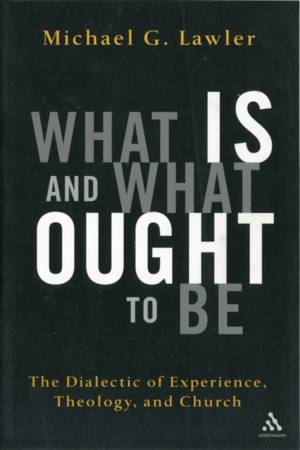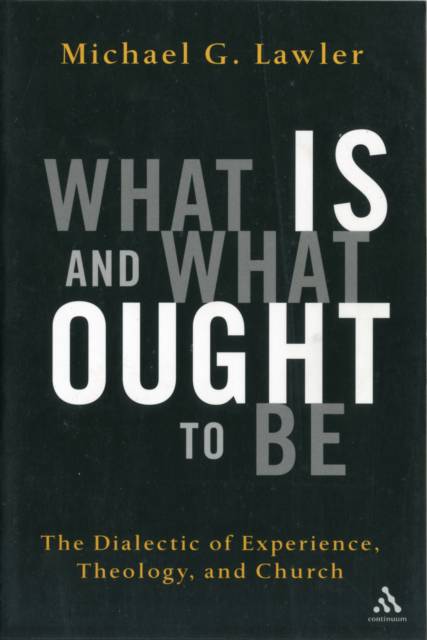
- Retrait gratuit dans votre magasin Club
- 7.000.000 titres dans notre catalogue
- Payer en toute sécurité
- Toujours un magasin près de chez vous
- Retrait gratuit dans votre magasin Club
- 7.000.0000 titres dans notre catalogue
- Payer en toute sécurité
- Toujours un magasin près de chez vous
What Is and What Ought to Be
The Dialectic of Experience, Theology, and Church
Michael G Lawler
Livre broché | Anglais
88,45 €
+ 176 points
Description
The genesis of this book was sown in 1961 in a seminar on theological method under the guidance of Bernard Lonergan. Lonergan was convinced that something new was happening in history, and that a living theology required a new theological approach.
In this book, Michael Lawler is concerned with three characteristics of this new approach: that theology must be historical, empirical, and in interdisciplinary collaboration with the social sciences. The book thus explores the relationship between practical theology (which is concerned with the church as it is and as it ought to be) and sociology, and specifically the theological realities of sensus fidei and reception. The exploration is concretized by a consideration of the sociological data and theology of two Catholic moral doctrines: artificial contraception and divorce and remarriage without prior annulment.
In addition to being a useful primer on the relationship between theology and sociology (both theoretical and empirical), the book provides a wonderfully clear description of the sea-changes that have occurred in Roman Catholic theology worldwide over the past 70 or so years. Among those elements are the turn to the subject; the sociology of knowledge; the distinctions between uncreated and created grace and between original and dependent revelation; a complex, non-fundamentalist understanding of Sacred Scripture; the preferential option for the poor; the notion of the church as communion rather than hierarchy; and, finally, the necessity for church teaching to be "received," accepted, by the whole church. If a Catholic Rip Van Winkle had fallen asleep 40 or 50 years ago, he would read this book, upon opening his eyes, with amazement.
In this book, Michael Lawler is concerned with three characteristics of this new approach: that theology must be historical, empirical, and in interdisciplinary collaboration with the social sciences. The book thus explores the relationship between practical theology (which is concerned with the church as it is and as it ought to be) and sociology, and specifically the theological realities of sensus fidei and reception. The exploration is concretized by a consideration of the sociological data and theology of two Catholic moral doctrines: artificial contraception and divorce and remarriage without prior annulment.
In addition to being a useful primer on the relationship between theology and sociology (both theoretical and empirical), the book provides a wonderfully clear description of the sea-changes that have occurred in Roman Catholic theology worldwide over the past 70 or so years. Among those elements are the turn to the subject; the sociology of knowledge; the distinctions between uncreated and created grace and between original and dependent revelation; a complex, non-fundamentalist understanding of Sacred Scripture; the preferential option for the poor; the notion of the church as communion rather than hierarchy; and, finally, the necessity for church teaching to be "received," accepted, by the whole church. If a Catholic Rip Van Winkle had fallen asleep 40 or 50 years ago, he would read this book, upon opening his eyes, with amazement.
Spécifications
Parties prenantes
- Auteur(s) :
- Editeur:
Contenu
- Nombre de pages :
- 224
- Langue:
- Anglais
Caractéristiques
- EAN:
- 9780826417046
- Date de parution :
- 05-04-05
- Format:
- Livre broché
- Format numérique:
- Trade paperback (VS)
- Dimensions :
- 153 mm x 229 mm
- Poids :
- 326 g

Les avis
Nous publions uniquement les avis qui respectent les conditions requises. Consultez nos conditions pour les avis.






